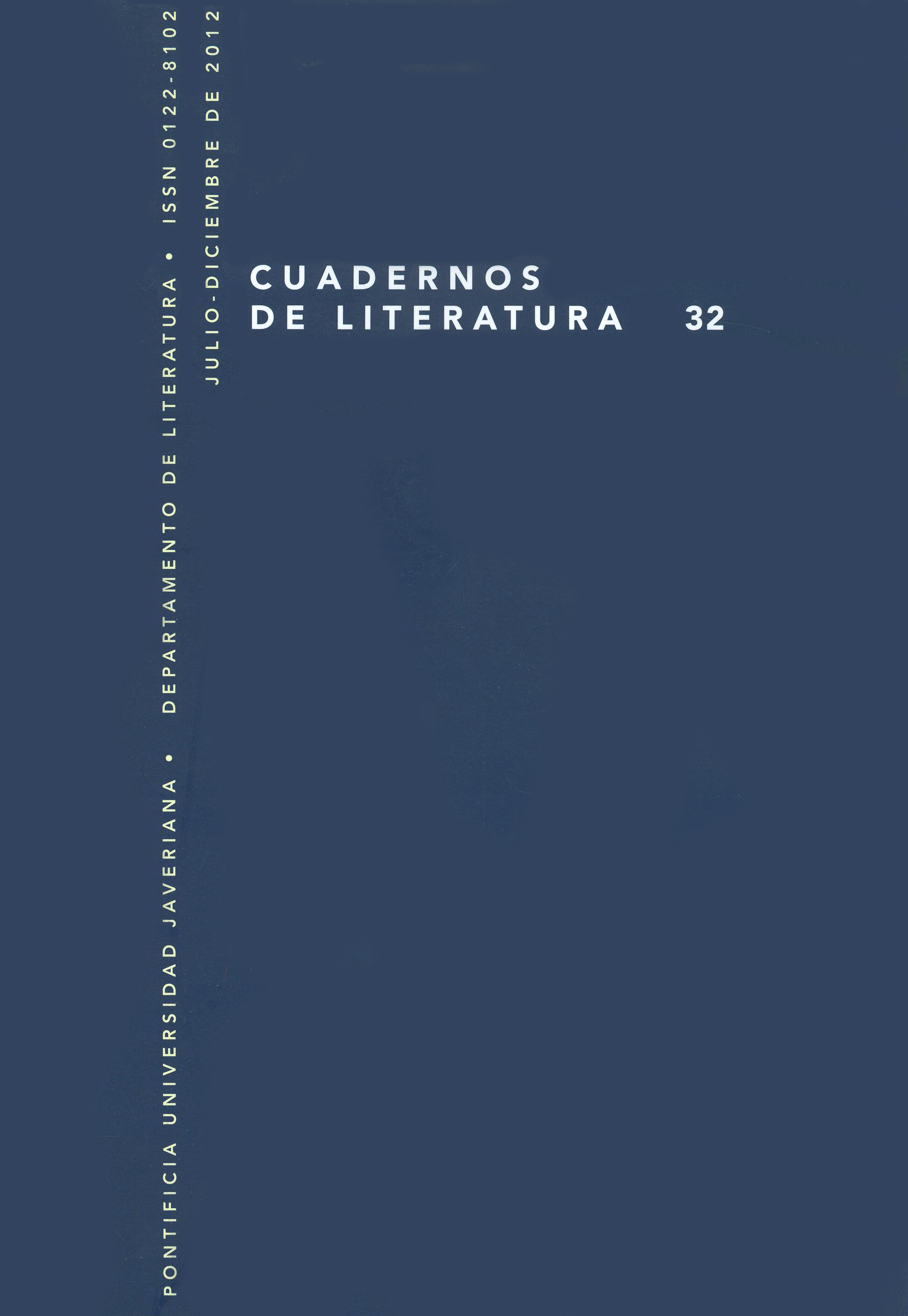Abstract
Este artículo revisa diferentes cartografías de la poesía latinoamericana reciente a partir de cuatro antologías: Antología de la poesía latinoamericana del siglo xxi. El turno y la transición (1997); Zur Dos, última poesía latinoamericana (2004); El decir y el vértigo. Panorama de la poesía hispanoamericana reciente (2005) y 2017. Nueva poesía contemporánea (2009). Las muestras se abordan a partir de su inscripción en el presente y las tensiones con el pasado y un futuro imaginado. Su intervención en el campo poético se analiza en la operación de corte, en cuanto momento crítico por excelencia de las antologías. El corte y la dispositio, la sintaxis con que se ordenan los textos, serán las instancias de transformación de lo leído en un continuo de índole diversaCuadernos de Literatura is registered under a Creative Commons Attribution 4.0 International Public License. Thus, this work may be reproduced, distributed, and publicly shared in digital format, as long as the names of the authors and Pontificia Universidad Javeriana are acknowledged. Others are allowed to quote, adapt, transform, auto-archive, republish, and create based on this material, for any purpose (even commercial ones), provided the authorship is duly acknowledged, a link to the original work is provided, and it is specified if changes have been made. Pontificia Universidad Javeriana does not hold the rights of published works and the authors are solely responsible for the contents of their works; they keep the moral, intellectual, privacy, and publicity rights.
Approving the intervention of the work (review, copy-editing, translation, layout) and the following outreach, are granted through an use license and not through an assignment of rights. This means the journal and Pontificia Universidad Javeriana cannot be held responsible for any ethical malpractice by the authors. As a consequence of the protection granted by the use license, the journal is not required to publish recantations or modify information already published, unless the errata stems from the editorial management process. Publishing contents in this journal does not generate royalties for contributors.


